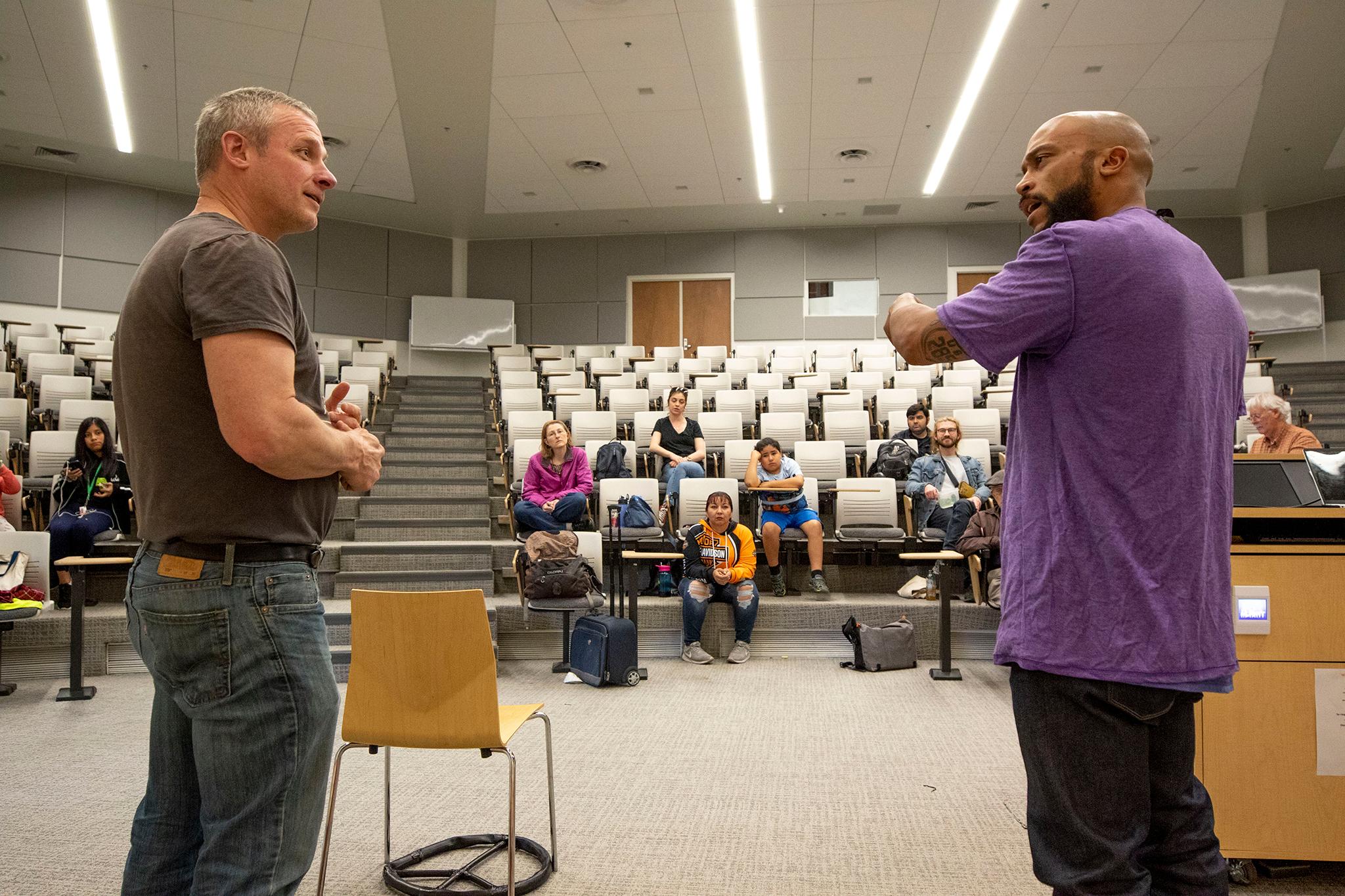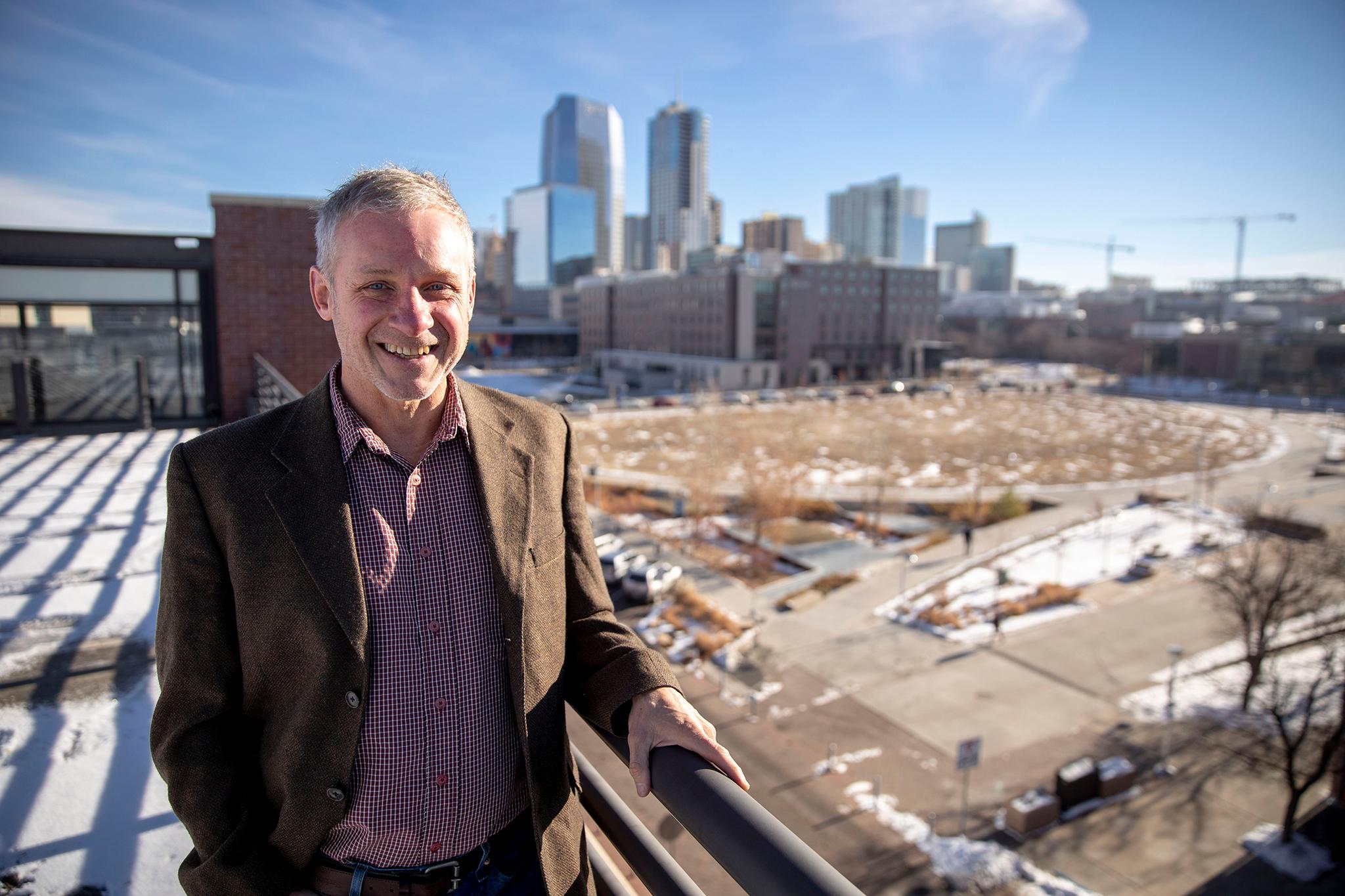James Walsh, an academic from the University of Colorado Denver, who studies immigration and labor movements, calls himself the dark horse candidate.
That's a big claim in a field with at least 21 candidates that includes a retired boxer, a retired Blood gang member turned home inspector and a ballet dancer.
What makes Walsh's campaign stand out?
"It's completely grassroots," he said.
He has a dozen students working on the campaign. None of them, including him, has experience in electoral politics. They're doing it their own way, fueled by enthusiasm.
His efforts in politics have largely revolved around the Romero Troupe, a people-powered theater group that takes on sweeping political issues through personal stories.
The Romero Troupe performers, not trained actors but community members with firsthand experience with the issues the plays address, write and produce the plays collectively.
Through that work, he has networked with community organizations citywide. Between those connections and three decades' worth of former students who are excited about his run for office, he believes he has what it takes to win.

Walsh plans to turn Denver into "the most worker-friendly city" in the country.
"We're witnessing a movement in the United States today around workers' rights that we haven't seen," he said. "Workers are reasserting themselves in their workplace. They're demanding dignity and respect, particularly low-income workers. And I think the city has an obligation to be a part of that movement."
That includes giving city workers access to collective bargaining.
When it comes to housing, Walsh believes the City of Denver already has the resources needed to shelter everybody.
"I think the city has enough money that anyone who lives on the streets that wants shelter, not just traditional shelters, but I'm talking their own space, some kind of modest space with a bathroom, should have access to that," he said.
He'd like the city to buy more motels and hotels to provide housing options and look to other cities for best practices.
He also plans on addressing the city's substance use issues by putting people from the harm-reduction movement in charge of policy and drumming up the political will to create a safe-use site, where drug users can imbibe under medical supervision and out of public space.
"Coming at this from a completely outsider perspective, I know there's going to be a steep learning curve," he said. "But a mayor is both a visionary for a city, someone who sets the moral and cultural code of the community and also someone who has to be very hands-on and has to be in the community, in the streets, talking to people, knowing what's happening."










